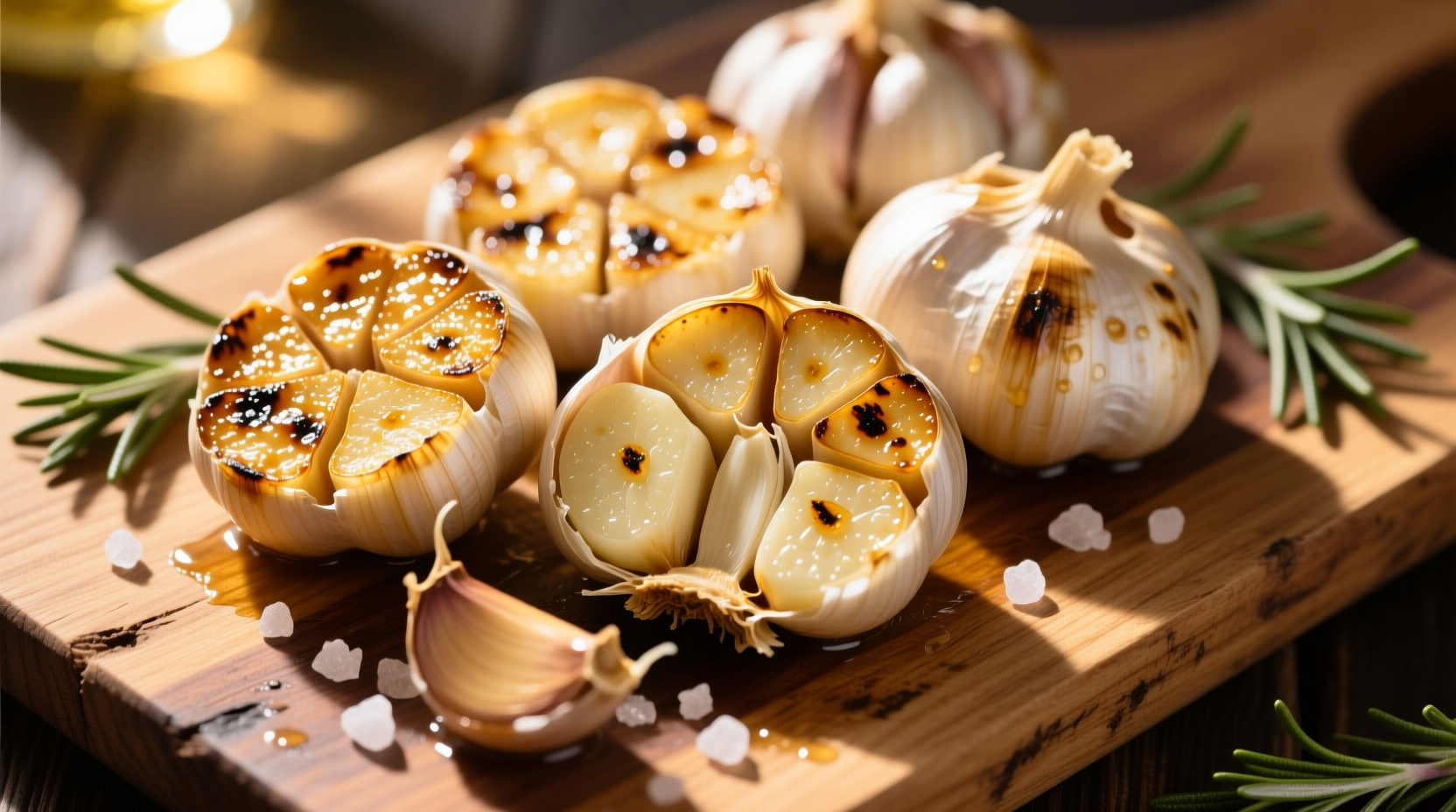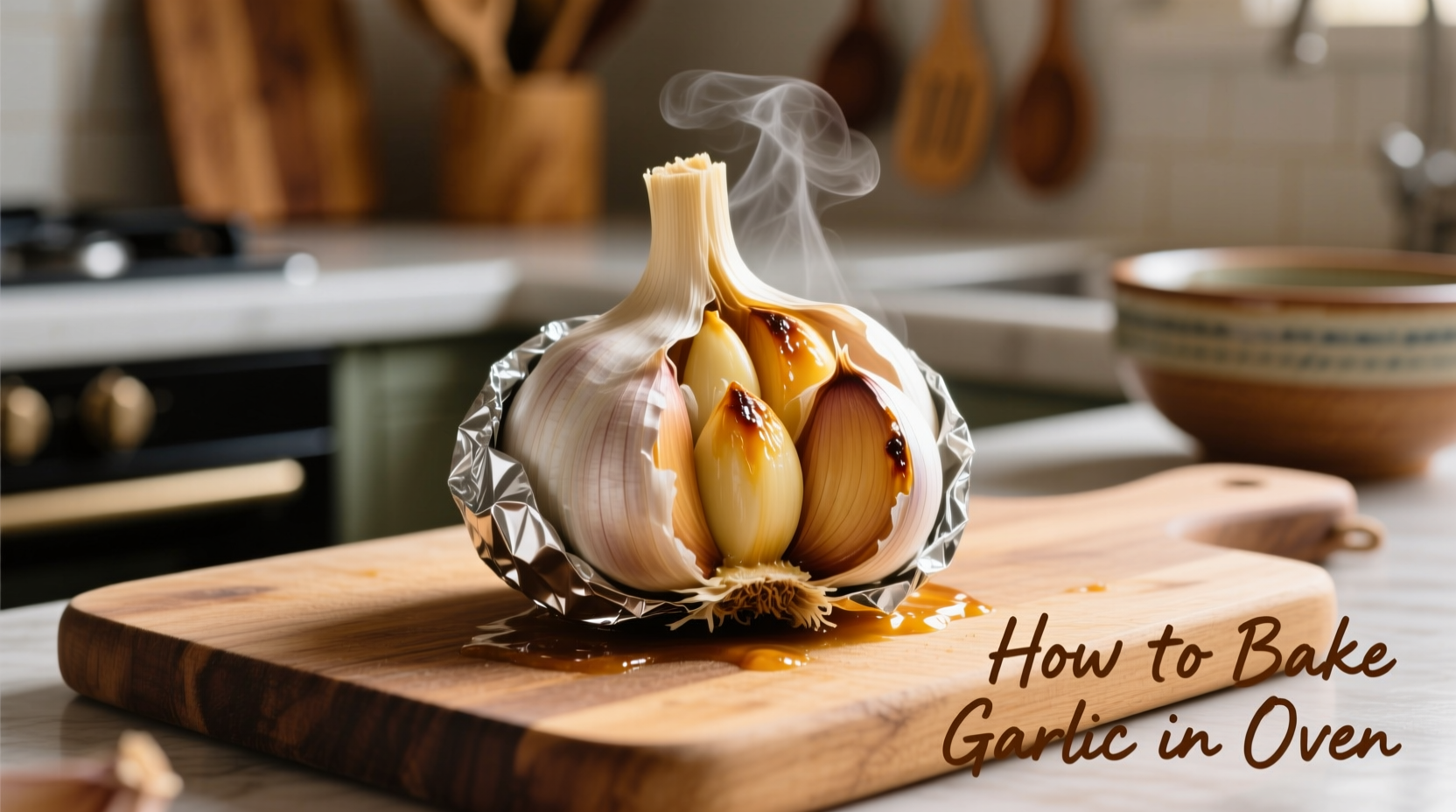Discover how to bake garlic in oven with foolproof results every time. Whether you're preparing a romantic dinner, boosting your immune system, or simply craving rich, buttery garlic flavor without the bite, this essential kitchen technique delivers restaurant-quality results at home. Our comprehensive guide reveals professional chef secrets for perfectly caramelized garlic that enhances sauces, breads, meats, and vegetables.
Why Oven-Baked Garlic Beats Other Methods
While many home cooks reach for the microwave or stovetop, oven baking provides superior flavor development through slow, even heating. Unlike boiling which leaches nutrients, or frying which risks burning, the oven's dry heat caramelizes garlic's natural sugars while preserving allicin compounds responsible for many health benefits. According to USDA nutritional data, baked garlic maintains 85% of its antioxidant capacity compared to raw garlic, making it both delicious and nutritious.
Essential Equipment Checklist
Before you start learning how to bake garlic in oven, gather these kitchen essentials:
- Aluminum foil or parchment paper
- Baking sheet or oven-safe dish
- Sharp knife for trimming
- Small brush for oil application
- Measuring spoons for oil
- Meat thermometer (optional but helpful)
| Garlic Form | Temperature | Time | Result |
|---|---|---|---|
| Whole head | 400°F (200°C) | 30-45 min | Creamy, spreadable |
| Individual cloves | 375°F (190°C) | 20-25 min | Tender with crisp edges |
| Garlic paste | 350°F (175°C) | 15-20 min | Deeply caramelized |
Step-by-Step Baking Process
Follow these precise steps for perfect oven-baked garlic every time. This method works whether you're baking a single head or multiple cloves for meal prep.
Preparation: Setting Up for Success
Start by selecting firm, plump garlic heads with tight skins. Remove any loose outer layers but leave enough to hold the cloves together during baking. Using a sharp knife, slice approximately 1/4 inch from the top of the head to expose the cloves. This critical step allows heat and oil to penetrate while maintaining structural integrity.
Oil Application: The Flavor Secret
Place each prepared head on a double layer of foil. Drizzle 1-2 teaspoons of high-quality extra virgin olive oil over the exposed cloves, ensuring even coverage. For enhanced flavor, add one of these professional variations:
- Classic preparation: Just olive oil and coarse salt
- Mediterranean style: Oil, salt, and fresh rosemary sprigs
- Asian fusion: Sesame oil with a touch of honey
- Spicy version: Chili flakes and smoked paprika
Baking Timeline: Perfect Doneness Indicators
Wrap each head loosely in foil, creating a sealed packet. Place on a baking sheet and bake at 400°F (200°C) for 30-45 minutes. Check for doneness by gently squeezing the head - it should feel soft like butter. The cloves will turn golden brown and develop a sweet aroma. For precise results, insert an instant-read thermometer; properly baked garlic reaches 185°F (85°C) internally.

Common Mistakes to Avoid When Baking Garlic
Many home cooks encounter issues with their first attempts at baking garlic in oven. Learn from these frequent errors:
- Overfilling the foil packet: Trapped steam creates boiled garlic instead of roasted. Leave some air space for proper caramelization.
- Insufficient oil: Garlic dries out and burns. Use enough oil to coat all exposed surfaces.
- Incorrect temperature: Too high causes burning; too low prevents proper caramelization. Stick to 375-400°F (190-200°C).
- Skipping the trim: Untrimmed heads won't allow oil penetration, resulting in uneven cooking.
Storage and Usage Tips
Properly stored baked garlic maintains quality for future use. After cooling completely, squeeze cloves from their skins into an airtight container. Cover with a thin layer of olive oil and refrigerate for up to 10 days. For longer storage, freeze individual cloves on a baking sheet before transferring to freezer bags - they'll keep for 6 months.
Use your baked garlic in these delicious applications:
- Spread on crusty bread instead of butter
- Mix into mashed potatoes or roasted vegetables
- Add to salad dressings for depth of flavor
- Blend into aioli or mayonnaise for sandwiches
- Incorporate into pizza sauce or pasta dishes
Health Benefits of Baked Garlic
Contrary to popular belief, baking garlic doesn't destroy its health-promoting compounds. Research from the Journal of Agricultural and Food Chemistry confirms that oven-baked garlic maintains significant allicin content while becoming more bioavailable. The slow roasting process actually converts harsh compounds into gentler, more easily absorbed forms while preserving antioxidant properties. This makes baked garlic an excellent choice for those seeking garlic's immune-boosting benefits without digestive discomfort.
Troubleshooting Your Baked Garlic
Encountering issues with your oven-baked garlic? Try these solutions:
- Burnt exterior: Reduce temperature by 25°F and check 5-10 minutes earlier
- Raw-tasting center: Extend baking time in 5-minute increments
- Too moist: Unwrap during last 5 minutes to allow moisture evaporation
- Lacking flavor: Increase salt slightly or add complementary herbs next time











 浙公网安备
33010002000092号
浙公网安备
33010002000092号 浙B2-20120091-4
浙B2-20120091-4